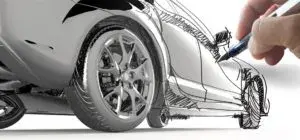By Reetika Wadhwa and Vibhuti Vasisth
The National Green Tribunal (“NGT”) in 2015 imposed a ban on all diesel vehicles older than 10 years and all petrol vehicles older than 15 years, in Delhi NCR. Previously, only diesel vehicles that were over 15 years of age were banned in the region. Pursuant to the NGT’s afore-mentioned decision, the Delhi Road Transport Office (“RTO”) was directed to de-register all diesel vehicles which were older than 10 years in the Capital. In addition to this, the RTO has also been asked to share a list of all such vehicles with the Delhi Traffic Police so as to effectively regulate the ban.
For our detailed coverage on NGT’s order and on car scrapping rules, please read india rto rules for car scrapping in delhi ncr.
What to do with Vehicles older than 10 years in Delhi NCR?
With the said ban in place, vehicles that are older than the prescribed year limit of 10 years, would only have the following two options. They may:
- Either have the said vehicle scrapped at an authorised scrapping unit; or
- Have the said vehicle re-registered in another State where no such ban is imposed.
The process of Re-registration of an old vehicle in another State:
In order to re-register your old vehicle in another State, one shall first have to obtain a No Objection Certificate (“NOC”) from the concerned RTO. Once an NOC is procured, the owner of the vehicle can have it re-registered at such other State where either no such ban is imposed, or where vehicles older than 10 years are permitted. Different states have different set of governing norms, and you may want to contact the concerned RTO to gain more details in this regard.
The way ahead:
The imposition of impugned ban by the National Green Tribunal has raised numerous concerns amongst the public, most prominent one being as to what the future looks like for diesel vehicles older than 10 years and petrol vehicles older than 15 years in the Capital Region and how to deal with vehicles whose registration have either expired or is about to expire.
The most common reason for disapproval of the ban by the vehicle owners is that it is a blanket ban imposed mechanically over all vehicles that are above the prescribed year limit. It is further criticised that there are various factors that determine the End of Life of a vehicle (“ELV”), and not just the year of its purchase. Reports suggest that factors such as the engine of the vehicle, its maintenance and usage, etc., play a crucial role in categorising whether the vehicle should be banned for being hazardous or not. In fact, this is also one of the contentions raised by the Central Government in the appeal[1] filed against NGT order by them before the Supreme Court of India which is presently pending adjudication.
On the other hand, one must also not overlook the intent behind imposing the said ban which is/was only to curb the rapidly rising pollution levels in Delhi as well as the entire Country. The ban must also be seen as an initiative to promote the replacement of old vehicles with modern ones. When vehicles reach the end of their useful lives, they contain different wastes that include glass, metal, plastic, fabric and rubber components. They also include fluids such as used oil, antifreeze, lubricants and gasoline or diesel, and increasingly contain electronic components with heavy and precious metals[2].Once vehicles reach the end of their useful life, they can become a liability on their owners as well as our Planet.
In an attempt to tackle the aforementioned, various countries across the globe already have properly regulated scrappage policies in place which primarily aim at:
- Stimulating the automobile industry;
- Generating and protecting employment in the sector; and
- Removing inefficient, more polluting vehicles from the road[3].
For instance, the scrappage scheme in Austria[4] allowed its customers a grant in cash of €1,500 if the old car was beyond the 13 years-age limit and if the new car would meet the Euro-4 emission criteria. The French scrappage scheme[5] which was introduced in 2009 offered grants worth €1,000, depending on the type of vehicle. It also offered a “Super-bonus” for scrapping old cars. Similarly, the German scrappage policy[6], which has been the largest in the world so far, offered a scrappage premium of €2,500 when buying a new car.
However, India is yet to introduce a distinct scrappage policy, which has thus, created uncertainty in the minds of vehicle owners. It is also surprising to note that despite being one of the top ten car-producing countries in the world, India still does not have a scrapping policy in place[7]. In the given circumstances, one can only wait for the Apex Court’s verdict in this regard which shall bring in more clarity in terms of what the future holds for diesel and petrol vehicles that are older than 10 and 15 years respectively.
We are keeping a track of the proceedings, and shall keep you updated with any further development in this regard.
Related Posts
India: Supreme Court bans sale and registration of BS- III vehicles from April 1
India: RTO Rules for Car Scrapping in Delhi-NCR
[1] CA. No. 006686-006688
[2] https://www.epa.gov/sites/production/files/2018-09/documents/eol_vehicle_guide_final_english.pdf
[3] Department for Business and innovation skills, http://www.berr.gov.uk/
[4] https://circabc.europa.eu/sd/a/b34363fe-8903-4d9c-a2f1 aa38733f0500/report_scrapping_schemes_annex_en.pdf
[5] ibid
[6] ibid
[7] International Organization of Motor Vehicle Manufacturers. (n.d.). 2008 Production Statistics. Retrieved from http://oica.net/category/production-statistics


